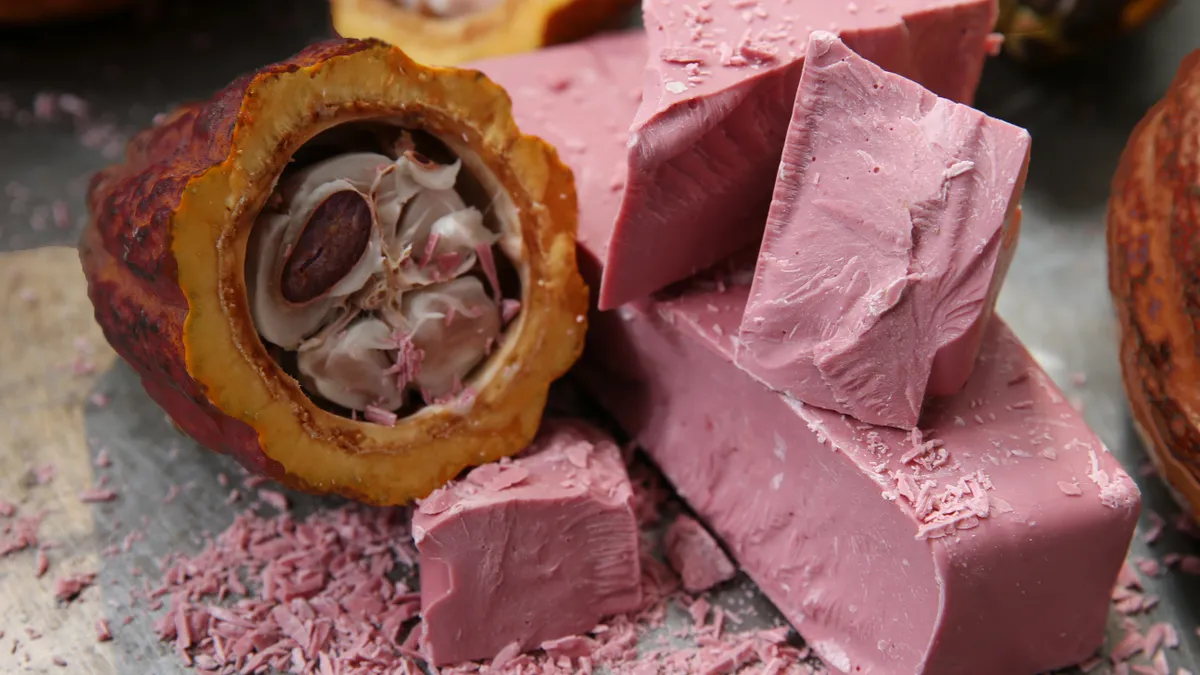Dive Brief:
- Aldi, Food Lion and Kroger topped Green America's chocolate retailer scorecard for their efforts to address child labor and deforestation, the non-profit announced this month.
- Retailers scored better if their store-brand chocolate was fair trade, if they took note that child labor in the chocolate industry was an issue and are taking steps to address it and if the they had commitments to zero deforestation.
- Trader Joe's and CVS were at the bottom of the list for offering five or fewer fair trade options of chocolate brands — CVS offers none. Trader Joe's also has no public deforestation policy, according to Green America.
Dive Insight:
The cocoa supply chain is complex and global. When issues such as child labor and deforestation arise, it's easy for producers or buyers to point fingers elsewhere.
While retailers might not have much say in the chocolate production, they still have a say in what products go on their shelves and what consumers buy, according to Todd Larsen, the executive co-director for consumer and corporate engagement at Green America.
"Retailers ... should take a leading role in promoting products that benefit cocoa farmers and the environment," Larsen said in a statement. If retailers make the decision to buy chocolate based on labor and environmental standards, then it can help shift the industry in the right direction, Green America noted.
Ivory Coast and Ghana produce 60% of the world's cocoa, according to the U.S. Department of Labor (DOL). The Bureau of International Labor Affairs estimates 2.1 million children were involved in labor for the cocoa sector in Ivory Coast and Ghana between 2013 and 2014. Since then, the governments of both countries, along with the DOL, have invested millions of dollars in education for children and worked to pass legislation outlawing the practice of child labor.
The Washington Post traveled to Ivory Coast last year and spoke with teenagers working in cocoa fields. One 15-year-old told the reporter they hadn't been to school in five years. Government officials in Ghana and Ivory Coast recently suggested raising cocoa prices to improve living conditions for cocoa farmers and reduce their reliance on child labor. "We will not continue to be victims or pawns of the global cocoa industry that is dependent on the work of our farmers," Ghanaian President Nana Addo Dankwa Akufo-Addo said, according to The Washington Post.
The DOL's 2018 report on goods produced using child or forced labor notes that Brazil, Cameroon, Ghana, Guinea and Sierra Leone are all countries where child labor occurs in cocoa production.
Commercial chocolate producers struggle to trace their supply back to small farms. Mars can trace 24% of its supply to farms, Nestlé can track 49% and Hershey can track "less than half," The Washington Post found. The DOL in its 2018 report said progress is being made regarding child labor in cocoa production. Multiple countries have set targets for sustainable sourcing, and companies producing the chocolate have pledged to improve.
Chocolate producers last month acknowledged increased regulations would help and called for new legislation in the European Union, which imports most of its cocoa. The law would require the companies to undergo third-party audits and hold them responsible for human rights violations in their supply chain, according to a statement issued last month by Mars Wrigley, Mondelez and other groups.
This story was first published in our weekly newsletter, Supply Chain Dive: Procurement. Sign up here.















